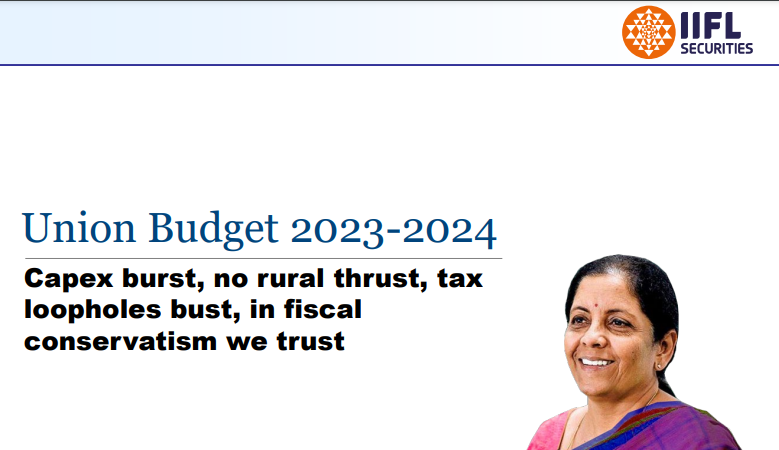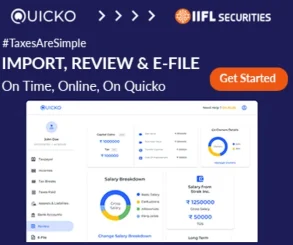What is Union Budget?
Article 112 of the Indian Constitution defines the Union Budget of India as a comprehensive annual financial statement on the government's capital, revenue, and expenditures. It is a detailed financial plan for the present and future based on revenue and expenditure estimates for the Central Government.
What is an Interim Budget?
An interim budget is announced before the Lok Sabha elections and is used for managing provisional expenditures over a short duration of a few months, until a new government takes office. Finance Minister Nirmala Sitharaman will present the interim budget this year. Before the 2019 Lok Sabha elections, Piyush Goyal, then acting Finance Minister, presented the interim budget. Mr. Goyal was filling in for Arun Jaitley, who was not well during that period.
When will Budget 2024-25 be presented?
Finance Minister Nirmala Sitharaman will present the interim budget in the parliament on February 1, 2024. Till 2016, the Union Budget was presented on the last working day of February. Former Finance Minister (late) Arun Jaitley changed it to February 1 in 2017.
What is Economic Survey?
The Economic Survey presents the annual economic developments in the country and highlights key challenges and their possible solutions. The survey is being prepared by the Chief Economic Adviser Dr. V Anantha Nageswaran.
When will the Economic Survey 2024-25 be presented?
The Economic Survey is presented in Parliament a day before the budget, on January 31.
What is fiscal deficit?
Fiscal deficit is the difference between total revenue and total expenditure of a government in a financial year. It is an indication of the total shortfall in a government's earnings compared with its spending. In calculating the total revenue, borrowings are not included.
What are the different budget documents?
Speech of the Finance Minister | Broad tax policy measures Problems faced by the economy Government’s solutions to the problems |
Key to budget | Explains key budget documents |
Budget highlights | Presents key features of the budget |
Annual financial statement | Shows receipts and payments of the government |
Consolidated fund | Funds raised by the government via taxes, loans, dividends, etc. |
Public account | Funds collected by the government via PF, small savings collections, etc. |
Finance bill | Tax proposals and tax rates |
Memorandum | Overview of tax provisions provided in the finance bill |
Budget at a glance | Overview of government finances |
Expenditure budget | Volume I explains ministry-wise provisions Volume II explains trends in expenditure (planned and non-planned) over several years |
Receipts budget | Details of revenue and capital receipts Explains estimates in simple language |
Customs & Central excise | Customs and excise notifications |
Implementation of budget announcements | Status of implementation of initiatives announced in the speech |
Macroeconomic framework statement | Assesses growth prospects of the economy and spells out key assumptions behind estimates on GDP growth, fiscal deficit, etc. |
Medium-term fiscal policy statement | Presents 3-year rolling target for specific fiscal indicators |
Fiscal policy strategy statement | Government policies around taxation, expenditure, lending, investments, etc. |
What is the Finance Bill?
Finance Bill contains government proposals for the levy of new taxes, alterations in the present tax structure or continuance of the current tax structure. The Parliament approves the Finance Bill for a period of one year at a time, which becomes the Finance Act.
What are Direct Taxes?
These comprise taxes imposed on the income of individuals or organizations. Examples of Direct Taxes include Income tax, corporate tax, inheritance tax, etc.
What are Indirect Taxes?
Indirect taxes paid by consumers when they buy goods and services. These include excise and customs duties.
What is a Capital Budget?
The Capital Budget consists of capital receipts and payments. These components are of a long-term nature.
Capital receipts include government loans raised from the public, government borrowings from the Reserve Bank and treasury bills, loans received from foreign bodies and governments, divestment of equity holding in public sector enterprises, etc.
Capital payments include capital expenditure on acquisition of assets, investments in shares, loans and advances, etc.
What is plan and non-plan expenditure?
Plan expenditures are estimated after discussions between each of the ministries concerned and the Planning Commission.
Non-plan revenue expenditure comprises interest payments, subsidies (mainly on food and fertilisers), wage and salary payments to government employees, grants to States and Union Territories governments, pensions, etc. Non-plan capital expenditure mainly includes defence, loans to public enterprises, loans to States, Union Territories and foreign governments.



